Earth Day serves as a reminder each year that protecting the environment and working toward a cleaner, healthier planet not only benefits people now
—but also helps us leave a safer home for future generations. This year, nearly 300,000 people from all walks of life took to the U.S. National Mall in Washington D.C. on April 18 to mark the day as “global citizens”
rallying for people and the planet.
Musicians, politicians, and non-profit leaders joined thousands of people to emphasize a message that relates both to poverty and environmental concerns:
Pollution kills and it hits the poor the hardest. To protect our lives and our planet, we must act now to end pollution.
The World Bank talked to people at the event to see what types of pollution they see around them and what actions, however small, they take to reduce pollution on a daily basis.
Get inspired by their words and actions:
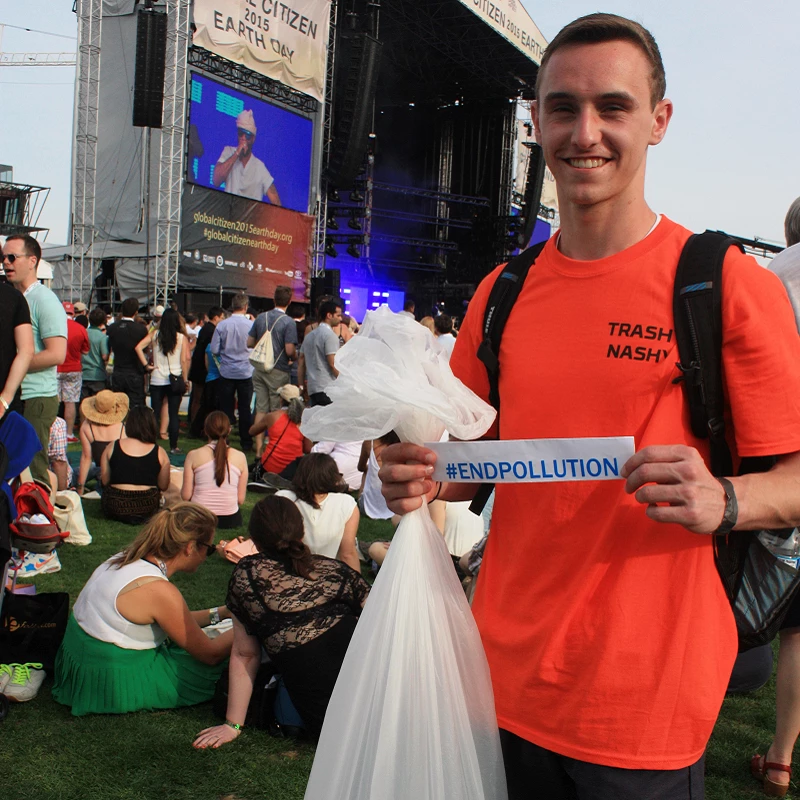
“I see pollution more in the air and water —in the creeks and in the sea. Pollution brings damage to nature and animals’ habitats.
“I walk a lot. A lot of people may drive, but I am used to walking on campus. Subconsciously, it makes me feel I’m contributing [to the cause of ending pollution].”
– Patrick Quackenbush, a student at the University of Maryland
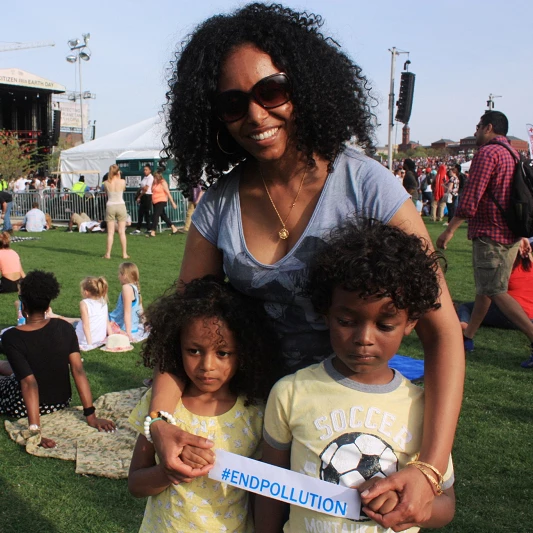
“ I am originally from Eritrea. I have two very young kids. There’s no better way [than bringing them to this event] to teach them about the environment and making sure that they understand the value of healthy air and clean water.
“I also teach them at home. They know not to waste any water. There was a time when my bathroom sink was dripping. We had read a story where a child was covering holes [in a dam] so the town wouldn’t flood, so Kanali got a cup and put it under the sink to catch the water. Even little messages like that are important and relate to them.”
– Milne Berhana, mother of Kalani (daughter) and Kalib (son)
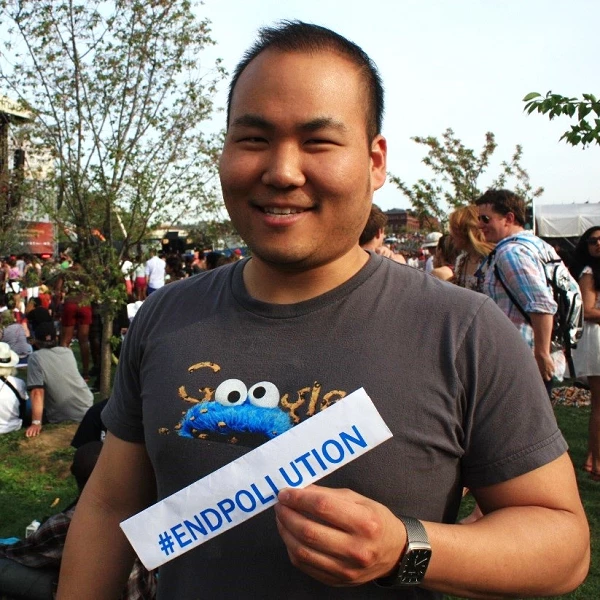
“People are not conscious of the adverse effects of pollution. For example, using plastic products. That’s a big deal. I don’t use plastic products — I use reusable water bottles.”
– Paul Jun from Baltimore, Maryland
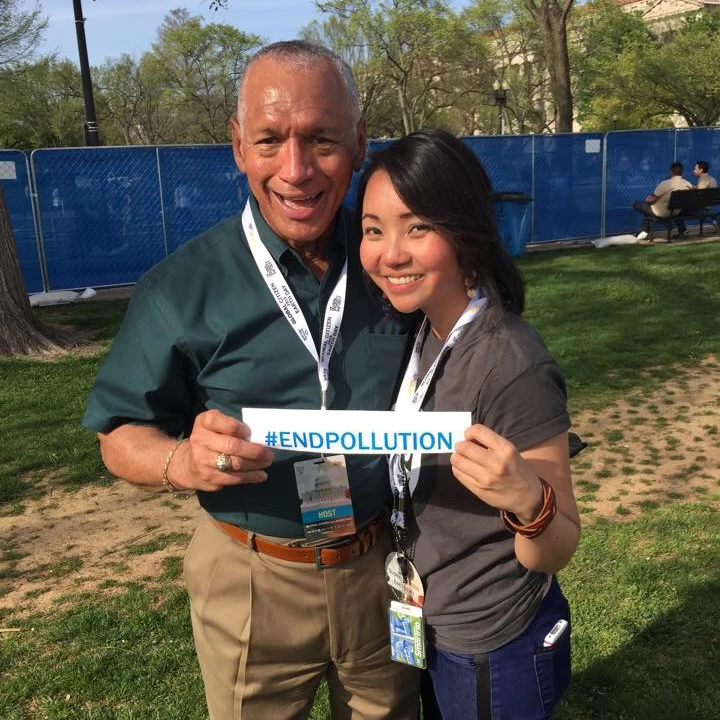
“The biggest thing about [flying into space] is having an opportunity to see this planet from the vantage point… You gain a greater appreciation for what Earth Day is about.”
– Charles Bolden (left), Administrator of NASA ( Watch an interview)
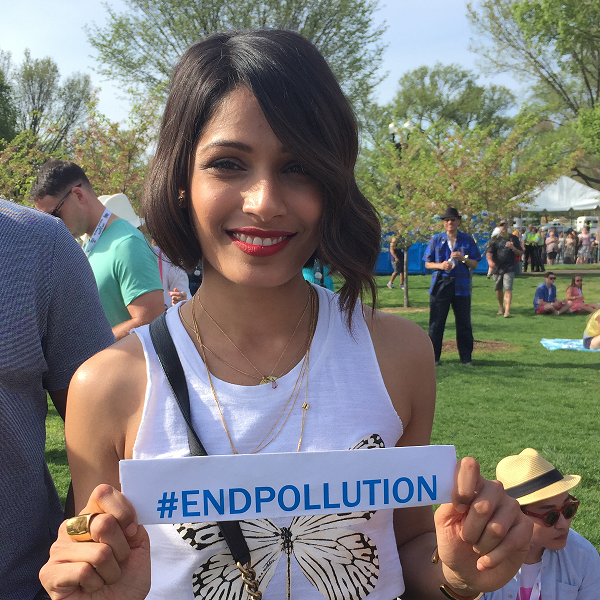
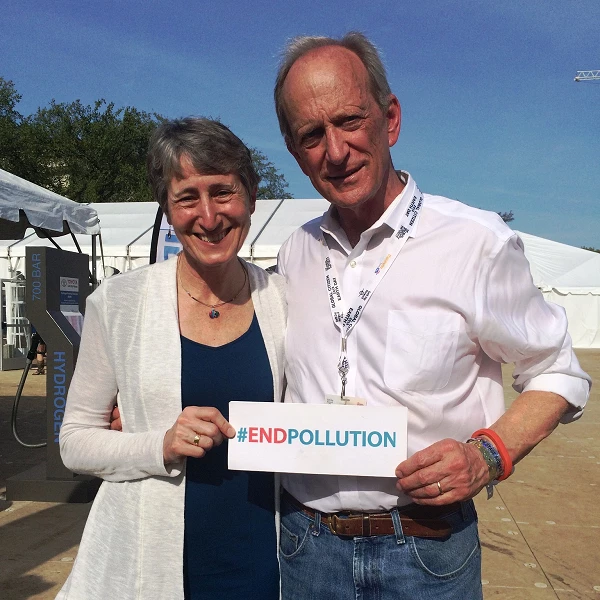
Freida Pinto (top), an actress and model from India, Sally Jewell (left), U.S. Secretary of the Interior, and Denis Hayes (right), founder of Earth Day Network, also support actions to end pollution. Pollution is the biggest killer in the world: It was related to an estimated nine million deaths in 2012 alone.
Global leaders get it. Countries are working to bring cleaner cities back to their people. Increasingly, individuals are also acting as responsible global citizens to commit to ending pollution in the face of climate change.
What types of pollution are you most concerned about? What actions are you taking to protect yourself the environment around you from pollution?
Share your thoughts by leaving a comment here, or tweeting them using #endpollution.
Musicians, politicians, and non-profit leaders joined thousands of people to emphasize a message that relates both to poverty and environmental concerns:
Pollution kills and it hits the poor the hardest. To protect our lives and our planet, we must act now to end pollution.
The World Bank talked to people at the event to see what types of pollution they see around them and what actions, however small, they take to reduce pollution on a daily basis.
Get inspired by their words and actions:

“I see pollution more in the air and water —in the creeks and in the sea. Pollution brings damage to nature and animals’ habitats.
“I walk a lot. A lot of people may drive, but I am used to walking on campus. Subconsciously, it makes me feel I’m contributing [to the cause of ending pollution].”
– Patrick Quackenbush, a student at the University of Maryland

“ I am originally from Eritrea. I have two very young kids. There’s no better way [than bringing them to this event] to teach them about the environment and making sure that they understand the value of healthy air and clean water.
“I also teach them at home. They know not to waste any water. There was a time when my bathroom sink was dripping. We had read a story where a child was covering holes [in a dam] so the town wouldn’t flood, so Kanali got a cup and put it under the sink to catch the water. Even little messages like that are important and relate to them.”
– Milne Berhana, mother of Kalani (daughter) and Kalib (son)

“People are not conscious of the adverse effects of pollution. For example, using plastic products. That’s a big deal. I don’t use plastic products — I use reusable water bottles.”
– Paul Jun from Baltimore, Maryland

“The biggest thing about [flying into space] is having an opportunity to see this planet from the vantage point… You gain a greater appreciation for what Earth Day is about.”
– Charles Bolden (left), Administrator of NASA ( Watch an interview)


Freida Pinto (top), an actress and model from India, Sally Jewell (left), U.S. Secretary of the Interior, and Denis Hayes (right), founder of Earth Day Network, also support actions to end pollution. Pollution is the biggest killer in the world: It was related to an estimated nine million deaths in 2012 alone.
Global leaders get it. Countries are working to bring cleaner cities back to their people. Increasingly, individuals are also acting as responsible global citizens to commit to ending pollution in the face of climate change.
What types of pollution are you most concerned about? What actions are you taking to protect yourself the environment around you from pollution?
Share your thoughts by leaving a comment here, or tweeting them using #endpollution.



Join the Conversation